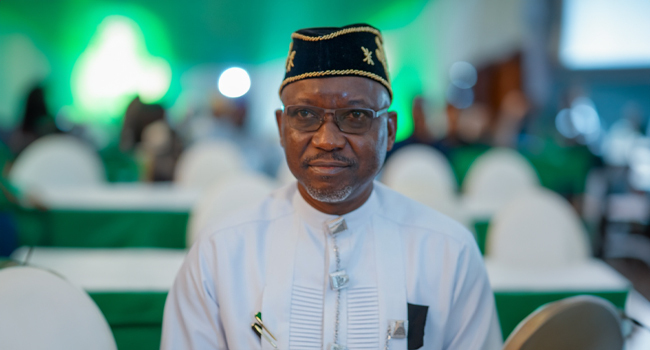The cost of cooking gas in Nigeria has been steadily increasing in recent months due to various factors like global energy price fluctuations and local supply chain challenges.
Although the cost of the commodity vary across states, the price of the regular 12.5kg gas is currently between N12,500 and N13,500 depending on the area of purchase. It was less than N8,000 some months ago.
Many Nigerians are switching to alternative cooking fuels like charcoal and firewood due to the rising cost of gas.
The Minister of State for Petroleum Resources (Gas), Ekperikpe Ekpo, announced on Tuesday that the Federal Government is now implementing measures to reduce the cost of liquefied petroleum Gas , popularly known as Cooking Gas .
He disclosed in a stakeholders’ consultative meeting held in Abuja that had international and indigenous oil companies, major and independent oil marketers, LPG dealers, regulators, among other players, in attendance.
In his address during the meeting, Ekpo said, told his audience that the Federal Government had decided to focus on three priority areas to ensure sustainable development in the country’s gas sector.
This came as gas producers told journalists on the sidelines of the event that the total gas debts to gas producing firms was now $1.3bn, as this was negatively impacting on investments in the sector.
Part of this, according to the minister, include the implementation of measures that would cut down cooking gas price significantly.
He said, “We will intensify efforts to increase upstream gas production, to bridge the significant gas supply gaps which continue to hamper our strategic economic sectors (gas to power and gas-based industries, as well as gas for export).
“We will prioritise the domestication and penetration of LPG and implement measures to significantly reduce the price of cooking gas for our people, ensuring it becomes more accessible, available, and affordable for our citizens.”
“It is imperative that we work together to unlock more resources to provide gas for power, gas-based industries, LNG export, and domestic use, fostering economic growth, ensuring energy security and eradicating poverty, which is a cardinal objective of President Bola Tinubu’s Renewed Hope Agenda.
The government is implementing initiatives like the Gas Supply Stabilization Fund to improve gas affordability and stabilise the market, as the gas minister assured his audience on Tuesday that steps were being taken to reduce cooking gas price.
Ekpo further stated that “we are dedicated to the completion of major gas midstream infrastructure and projects, including the AKK Gas Pipeline Project, the OB3 Gas Pipeline Project, and the ANOH Project, as well as enabling flagship projects like the Brass Methanol Project, to enhance the efficiency and capacity of our gas sector.”
He described Nigeria as one of the leading gas-rich countries in the world but had yet to unlocked the full potential of this valuable resource.


